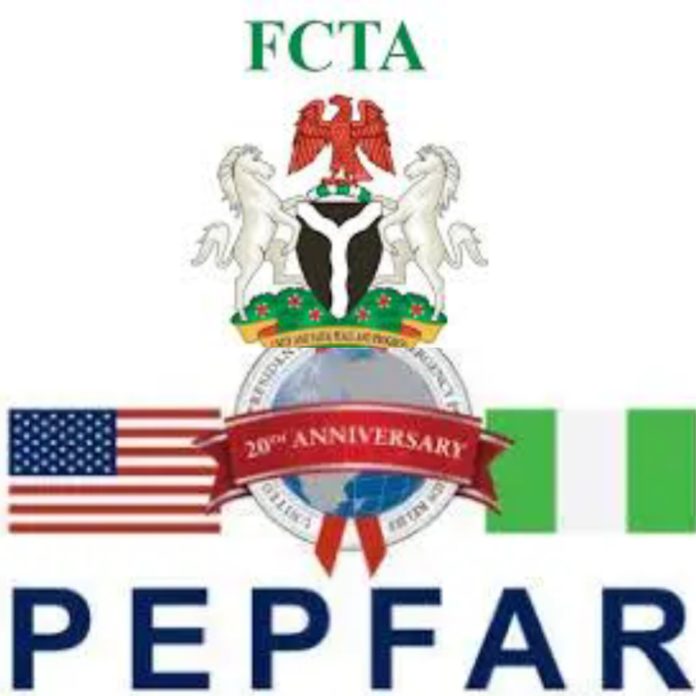Nigeria’s fight against HIV faces enormous challenge, following a decision by the United States to withdraw over 90 per cent of funding from key HIV interventions, including the President’s Emergency Plan for AIDS Relief, PEPFAR.
The move, which has sent shockwaves through the global health community, has left the nation clinging to any available resource to urgently salvage the situation.
For over two decades, PEPFAR has been a lifeline for millions living with HIV/AIDS, particularly in Africa, where it has funded life-saving treatment, prevention programmes, and health infrastructure.
As a major beneficiary of the programme, Nigeria is now grappling with the new reality of sustaining its fight against HIV without this crucial support.
In Abuja, where PEPFAR has played a vital role in HIV response programmes, the impact of this withdrawal could be devastating if not properly managed.
A drastic reduction in funding could lead to shortages of Anti-Retroviral Drugs, ARVs, a surge in new infections, and the collapse of essential health services for people living with HIV.
Against this backdrop, the Federal Capital Territory Administration, FCTA, has moved swiftly to mitigate the potential fallout by inaugurating an Administrative and Technical Committee on HIV Response.
While the move is commendable, the task before the committee is enormous as it must not only maintain the current HIV prevalence rate in the FCT but also prevent any potential rise in new infections.
With key stakeholders, including the Director General of the FCT Hospitals Management Board, the Director of Public Health, the Programme Manager of FCT Action for Control of AIDS, FACA, and the FCT State AIDS Programme Coordinator on board, the committee must urgently develop a comprehensive strategy to bridge the funding and operational gaps left by the withdrawal of US support.
It is public knowledge that Nigeria is home to over 1.9 million people living with HIV, and the FCT, with its high urban population and influx of people from other parts of the country, is a hotspot for new infections.
For years, PEPFAR has provided free access to ARVs, testing kits, and preventive measures, keeping the epidemic under control. Without sustained intervention, there is a real risk of reversing the progress made over the years, particularly among vulnerable groups such as pregnant women, young people, and rural communities.
In the absence of continued access to ARVs, the risk of mother-to-child transmission will rise, and thousands of patients who rely on free medication could face serious uncertainties and abandon treatment, leading to increased transmission rates and higher mortality.
The FCTA’s swift response is commendable, but the real test lies in the execution of its plans. Without significant domestic funding, technical expertise, and a well-structured implementation framework, the committee’s efforts could amount to little more than rhetoric.
It is therefore important to ensure sustained supply of ARVs while exploring alternative funding sources, whether through partnerships with private organizations, international donors, or government budget reallocations.
Beyond funding, there is an urgent need for capacity building. PEPFAR not only provided financial assistance but also technical expertise in HIV response. The committee must ensure that local health personnel are adequately trained to handle diagnostics, treatment, and patient support services.
For long term solutions, the country must investing in local production of ARVs to reduce dependency on external donors.
HIV is not just a health issue; it is a social and economic challenge that requires a multi-sectoral response. The FCTA committee must work closely with non-governmental organizations, community leaders, and civil society groups to ensure a holistic approach to HIV prevention and care. Grassroots engagement, awareness campaigns, and behavioral change initiatives must be intensified, especially among high-risk populations.
More importantly, the private sector must be brought into the conversation. Corporate organizations can play a pivotal role in supporting HIV response programs through Corporate Social Responsibility, CSR, initiatives, funding research, and integrating HIV prevention into workplace policies.
A Call to Action
The fight against HIV in the FCT and Nigeria at large is at a critical crossroads. While the loss of PEPFAR funding is a significant blow, it should serve as a wake-up call for Nigeria to take ownership of its public health agenda.
The government must demonstrate political will by increasing domestic investment in health, ensuring transparency in fund allocation, and fostering partnerships that can fill the gap left by international donors.
The FCTA has made a bold move by setting up the HIV Response Committee, but the time for mere deliberation is over. The committee must move quickly to implement actionable solutions that guarantee continued treatment, prevention, and care for those affected by HIV.



